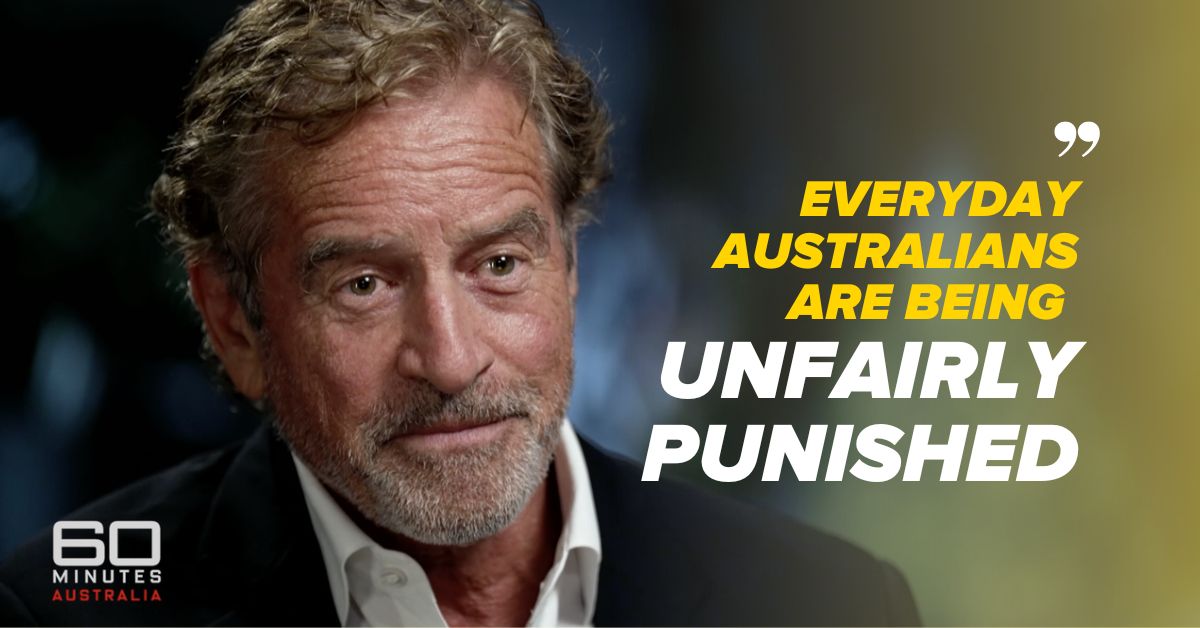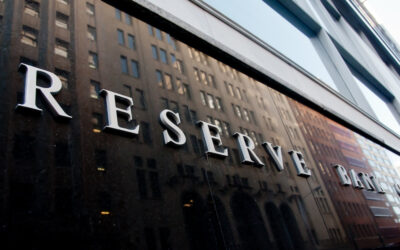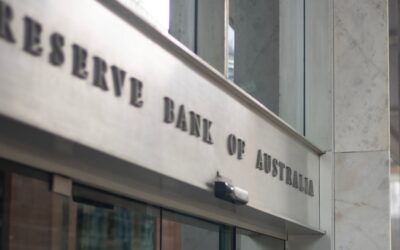In this article:

“We’ve got to get inflation under control” – it’s the catch all phrase being used by Government ministers and the Reserve Bank (‘RBA’) Governor Philip Lowe, to justify the ten consecutive interest rate rises in Australia.
However, these seven words provide little explanation to the three million owner-occupier mortgage holders across the country, who are battling to afford the cost of rapidly increasing mortgage repayments.
Mark Bouris appeared on a special 60 Minutes episode on Channel Nine which attempted to showcase why interest rate hikes are NOT the “cure all” for Australia’s economic issues. Bouris went as far as suggesting that the RBA is utilising an outdated approach to help control inflation.
The Financial Impact
To highlight the real world cost of consecutive rate hikes, let’s look at the increase on an average borrower’s monthly mortgage repayments between the first rate hike in May 2022 and now.
The latest RBA meeting for March 2023 saw the official cash rate increase by a further 25 basis points, to 3.60%.
Say you were to take out the average Australian home loan of $600,000 in April of 2022 (one month before the first rate hike of this recent cycle), with a starting variable rate of 2.5%, over a 30 year loan term, your repayments would have increased by $1,212 each month! Here’s how this plays out month-to-month:
|
Month |
Interest Rate |
Monthly Repayment |
RBA increase |
Cumulative Monthly Increase |
Percentage increase over May repayment |
|
May-22 |
2.50% |
$2,370.73 |
0.25% |
0 |
0 |
|
Jun-22 |
2.75% |
$2,449.26 |
0.50% |
$78.53 |
3% |
|
Jul-22 |
3.25% |
$2,610.26 |
0.50% |
$239.53 |
10% |
|
Aug-22 |
3.75% |
$2,776.51 |
0.50% |
$405.78 |
17% |
|
Sep-22 |
4.25% |
$2,947.80 |
0.50% |
$577.07 |
24% |
|
Oct-22 |
4.75% |
$3,123.94 |
0.25% |
$753.21 |
32% |
|
Nov-22 |
5.00% |
$3,213.72 |
0.25% |
$842.99 |
36% |
|
Dec-22 |
5.25% |
$3,304.53 |
0.25% |
$933.80 |
39% |
|
Jan-23 |
5.50% |
$3,396.36 |
0.00% |
$1,025.63 |
43% |
|
Feb-23 |
5.50% |
$3,396.36 |
0.25% |
$1,025.63 |
43% |
|
Mar-23 |
5.75% |
$3,489.17 |
0.25% |
$1,118.44 |
47% |
|
Apr-23 |
6.00% |
$3,582.94 |
$1,212.21 |
51% |
**Disclaimer: Original Loan amount: $600,000. Loan settled May 2022. Starting Variable rate: 2.5%. Rates increase in line with RBA Decisions. New repayments calculated on the reducing loan balance over the remaining term of the loan and new interest rate.
The information is provided by Yellow Brick Road Finance Pty. Limited ACN 128 708 109 Australian Credit Licence 393195 and does not take your personal objectives, financial situation or needs into account. Consider its appropriateness to these factors before deciding whether to act on it. WARNING : This comparison rate is true only for the examples given and may not include all fees and charges. Different terms, fees or other loan amounts might result in a different comparison rate.
Also appearing on the 60 Minutes episode, Cherelle Murphy, Chief Economist at Ernst & Young, explained why central banks across the globe turn to rising interest rates to manage inflation.
Murphy agreed that raising interest rates to control inflation is “a blunt tool”, however if the RBA doesn’t tackle inflation, “then inflation will get away from us” and like it or not, the only way the RBA can tackle inflation is by raising interest rates.
“It’s like if the Australian economy was a patient, interest rates are the medicine, and the medicine doesn’t taste good, it takes a while for the medicine to kick in, but eventually it does kick in and we get on with life.”
“If the Reserve Bank effectively takes away some of our disposable income [by increasing interest rates], we might think twice about the holiday or the renovation let’s say, and that will again cool the economy down.”
Journalist Tom Steinfort then asked Murphy the obvious question:
“But aren’t the people with the most disposable income, those that have already paid off their mortgage?”
“Yes,” said Murphy.
Steinfort asked, “so this whole policy completely misses them?”
Murphy admitted, “That’s one of the very unfortunate parts of monetary policy. It is a big blunt tool and it’s quite unfair.”
Just how many Australians are impacted?
Steinfort stated that those suffering the most from interest rate hikes are in a relatively small cohort: “There are around 10 million dwellings in Australia. Just over a third of those properties are owned outright and another 30% are rented out by investors. That means there are only 3.3 million households right now that have an owner occupied mortgage.”
When interviewing Mark Bouris, Steinfort stated that these numbers show it’s a very small number of Australia’s population of 26 million that are getting hit hard by rate hikes.
Bouris replied: “That’s the problem with monetary policy that the Reserve Bank manages, it’s not the Reserve Bank’s fault, that’s the mandate they’ve got. They have no other weapon or weaponry other than hiking interest rates to fight inflation, which is their goal: fix inflation.”
“Milton Friedman, one of the most famous economists of all time, said in the 80s and 90s. ‘Consumers are not responsible for inflation. Governments are.’”
“If I load you up with a whole lot of cash that you didn’t earn, as we did during the COVID period. And I encourage banks to lend you money at 2%, by giving banks money at a very, very cheap rate…you do not feel in any way guilty about spending it.”
Bouris says it is no wonder that property purchasers during the COVID period went and potentially overbid on homes, “because they were bidding with money they didn’t earn.”
“What bothers me is that the Reserve Bank should know this, this psychological analysis or profiling of people who borrow money. The government should know this.”
Interest rate rises not a “cure all” for economic problems
The Reserve Bank says that rate increases are necessary to regain control over Australia’s problematic inflation. But what if the experts have got it wrong?
Mark Bouris was asked by Steinfort to discuss whether there is a better way to manage inflation, rather than increasing interest rates.
He said that the RBA’s dependence on interest rates as a ‘cure-all’ for Australia’s economic issues is an outdated approach, and for now, Australia needs to stop panicking about inflation.
According to Mark, we have to become accustomed to higher inflation “for the short term, because we’re dealing with extraordinary circumstances.”
Bouris said, “We have a war in Ukraine, we’ve had floods, we’ve had droughts, we’ve had supply chain issues, a global pandemic, China closed down for a period of time because of it’s COVID policy, a lot of the stuff we import comes from those places…this is a very extraordinary period.”
In essence, Mark says we’re using a 1990’s economic policy to manage a 2023 economic situation.
This sentiment was echoed by Isabella Weber, an economics professor at the University of Massachusetts, who believes Australia is going about fighting inflation the wrong way. Webber told 60 Minutes that using interest rate hikes “is a very painful way of fighting inflation” and that she believes there are alternatives.
“The idea of using interest rate to tackle inflation is a very roundabout way of going about it. It’s a bit like as if you had a fire in your kitchen, and you were gonna flood your whole house. So therefore, I think given the nature of the inflation that we have been observing, it will be better to choose more targeted measures rather than to simply rely on interest rate hikes.
Weber agreed with both Murphy and Bouris that the RBA’s approach to fighting inflation “often makes the people who have suffered from inflation most suffer once more.”
One obvious measure in Professor Weber’s opinion is for government’s to start to revamp their approach to taxing ‘big business’ in Australia, “many of whom are recording record profits,” said Steinfort. Introducing price caps on gas and oil is another measure that Professor Weber is adamant would not only be a better solution, but a faster way of bringing down inflation.
Weber said, “The German central bank estimates that this measure is bringing down inflation by 1.5 percentage points in Germany. So this is quite significant. Due to the enormous pain that is being induced by interest rate hikes, I think governments should step up and should be creative and try to devise surgical tools to deal with the kind of inflation that we are facing today.”
YBR Home Loans giving back
Amidst the angst and stress of rapidly rising interest rates, Mark Bouris and YBR Home Loans are doing their bit to give back.
YBR’s Fair Go Giveaway was launched last week to give Australian mortgage holders a chance to share their story about how the continual rate hikes have impacted their day to day lives.
Announcing the giveaway, Bouris said: “We are trying to get people in Australia tell us their story about how they’ve been affected by the current environment.”
Are you on a fixed rate that is about to revert to an astronomical variable rate, or are you all of a sudden paying three times as much as you used to pay? Tell us your story.
“We want to create a platform that emphasises how Australians feel, and we’re going to send that the Reserve Bank are going to say, ‘hey, this is the outcome of what you’re doing.’”
YBR’s Fair Go giveaway will randomly select five entrants from across Australia to receive $12,000 each. Terms and Conditions apply, so head to www.ybr.com.au/fairgo/ for more and to share your story.



